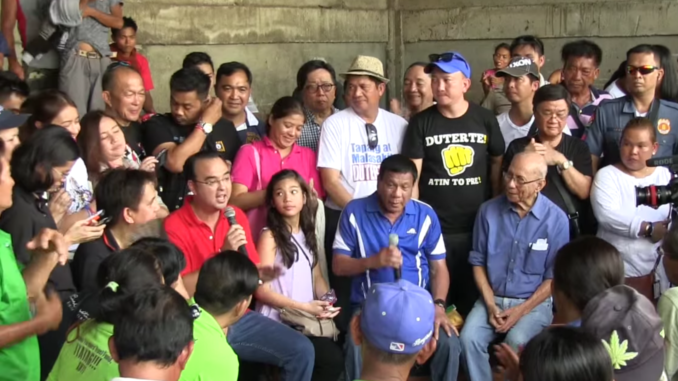
Malacanãng on Sunday (Feb. 10, 2019) defended President Rodrigo Duterte’s veto of the Philippine Coconut Authority bill, first use of his veto power. The presidential palace said it wanted a PCA less susceptible to corruption.
Duterte anchored his veto on the concern that a reconstituted PCA board with substantial number of private sector representatives would in effect make the private sector manage a huge fund which is basically government money entrusted for the benefit of Filipino coconut farmers.
Under the measure, the reconstituted and strengthened PCA would have managed and disposed of a coco levy fund that now exceeds P100 billion.
The vetoed bill called for 15-member PCA Board that allows seven members from the private sector to join. The Palace official said such move will permit private persons to influence the disbursement of public funds.
“The PCA is set up like the Road Board which is heavily criticized for allegations of corruption and misappropriation of funds,” explained presidential spokesman Salvador Panelo. He stressed that Duterte’s use of veto on the bill was done to promote good governance and public accountability.
“The veto of the bill will give Congress more time and opportunity to improve the formulation of the PCA and the distribution of coco levy funds,” said the presidential spokesman.
New version needed
Panelo added a new version of the bill should have more safeguards to protect taxpayers’ money and shield the coconut levy funds from irregular and unlawful use.
He said the P10 billion annual appropriation for the development of an industry that does not seek approval from the executive branch is “susceptible to corruption akin to creating pork barrel funds.”
“The oversight functions over the PCA are placed only with Congress. Specifically, the strengthened PCA bill mentions an oversight to be exercised by the coconut farmers and the industry oversight committee to the exclusion of the executive branch,” Panelo said.
He complained that the bill gave the reconstituted PCA functions over the sale, disposition or dissolution of coco levy assets, but did not give it the power of checks and balances.
This would render the Department of Justice powerless over cases involving the coco levy fund, Panelo, a lawyer, pointed out.
On Feb. 8, 2019 President Duterte sent a letter to Senate President Vicente Sotto III and members of the Senate explaining the need to veto the bill, believing that its enactment would be against the full utilization and distribution of coco levy funds to its beneficiaries.
The PCA bill is one of the priority bills pushed by Duterte.
The reconstituted PCA gives greater representation to farmers with six seats (two each from Luzon, Visayas, and Mindanao) in the 11-member PCA Board.
Other members will be composed of a representative from the PCA, the Department of Finance, the Department of Agriculture, the Department of Budget and Management, and one coconut industry stakeholder.
Senators Cynthia Villar and Francis Pangilinan said the President’s veto would not discourage them from fighting for the rights of farmers to the coco levy fund, which they claim rightfully belongs to them.
“In the coming days, I hope to be enlightened more on why the President believes the measure lacked vital safeguards and will work with him to improve this bill,” said Villar.
Pangilinan said the President’s veto has put a cloud of uncertainty on when the country’s coconut farmers would finally be able to benefit from the coco levy fund.
“It is their money—from years of toil and sweat,” Pangilinan said.
The measure before the President, Pangilinan said, is not reflective of the farmers’ sentiments and needs. “It has gone through a tedious process of revisions and has lost its soul.”
The senator, who is a part-time farmer, thinks the veto means Congress is back to square one.
Pangilinan advised: “We urge fellow advocates of the coconut farmers’ cause to stay the course and again work on the proposed law that would truly be beneficial to the farmers and the industry.”
